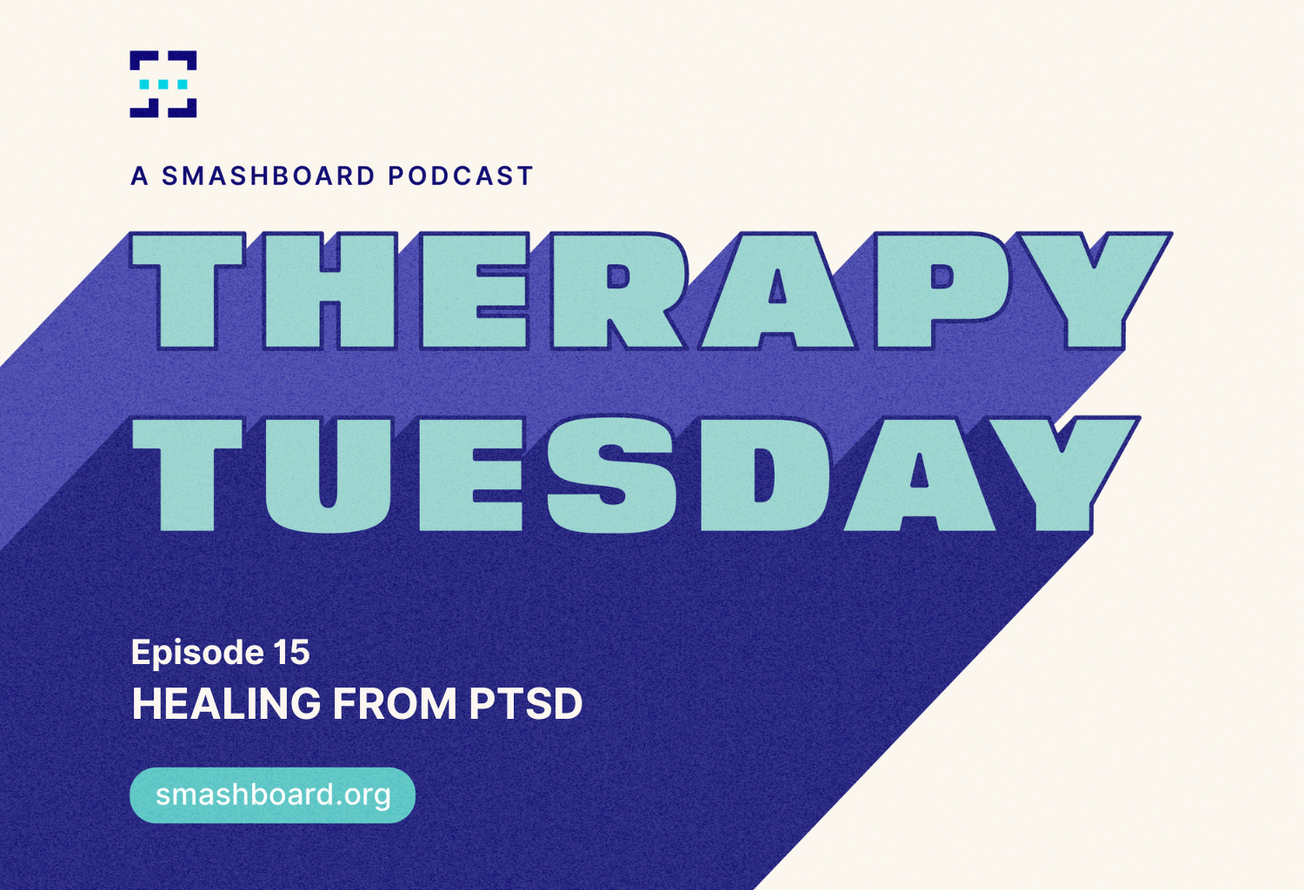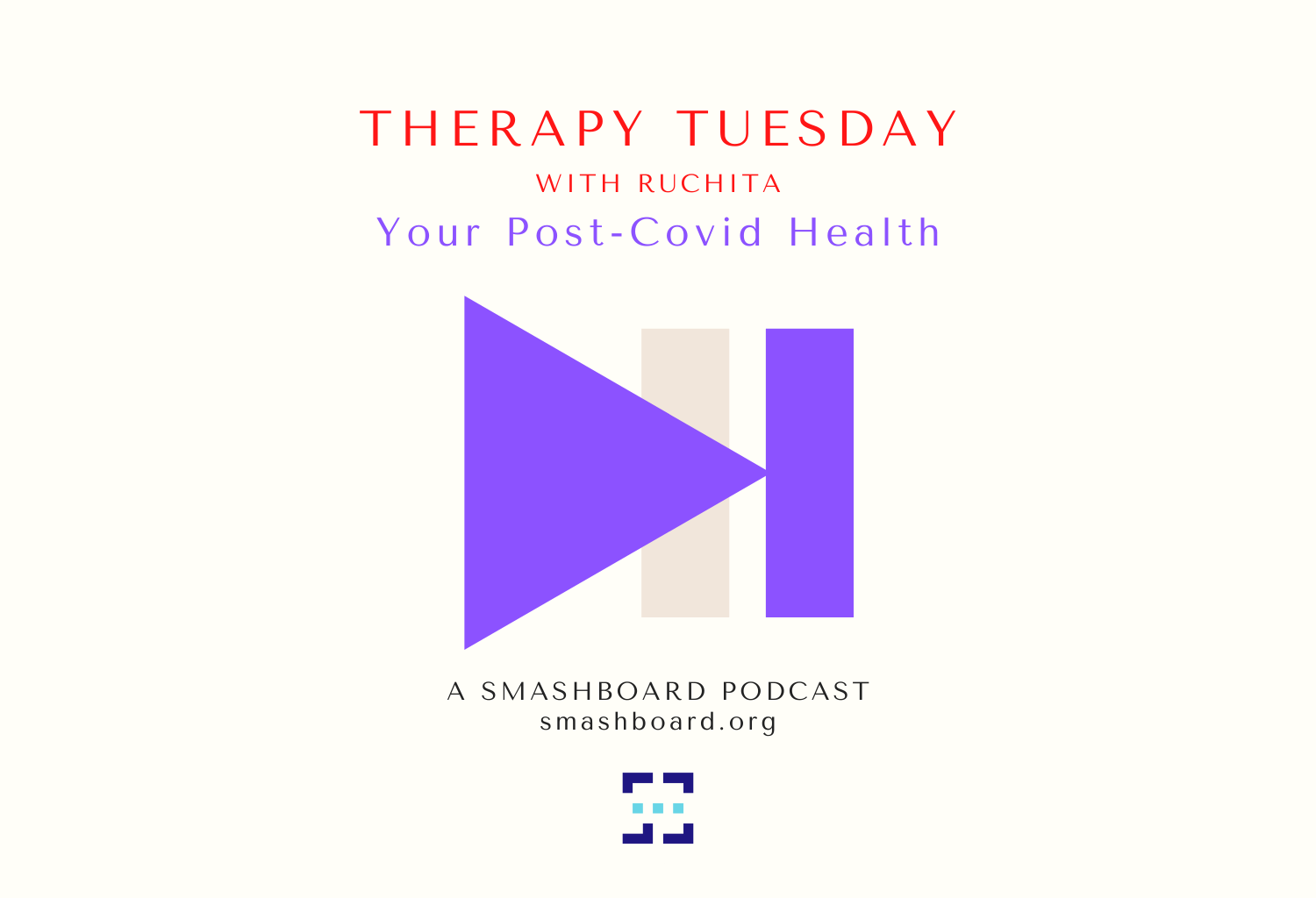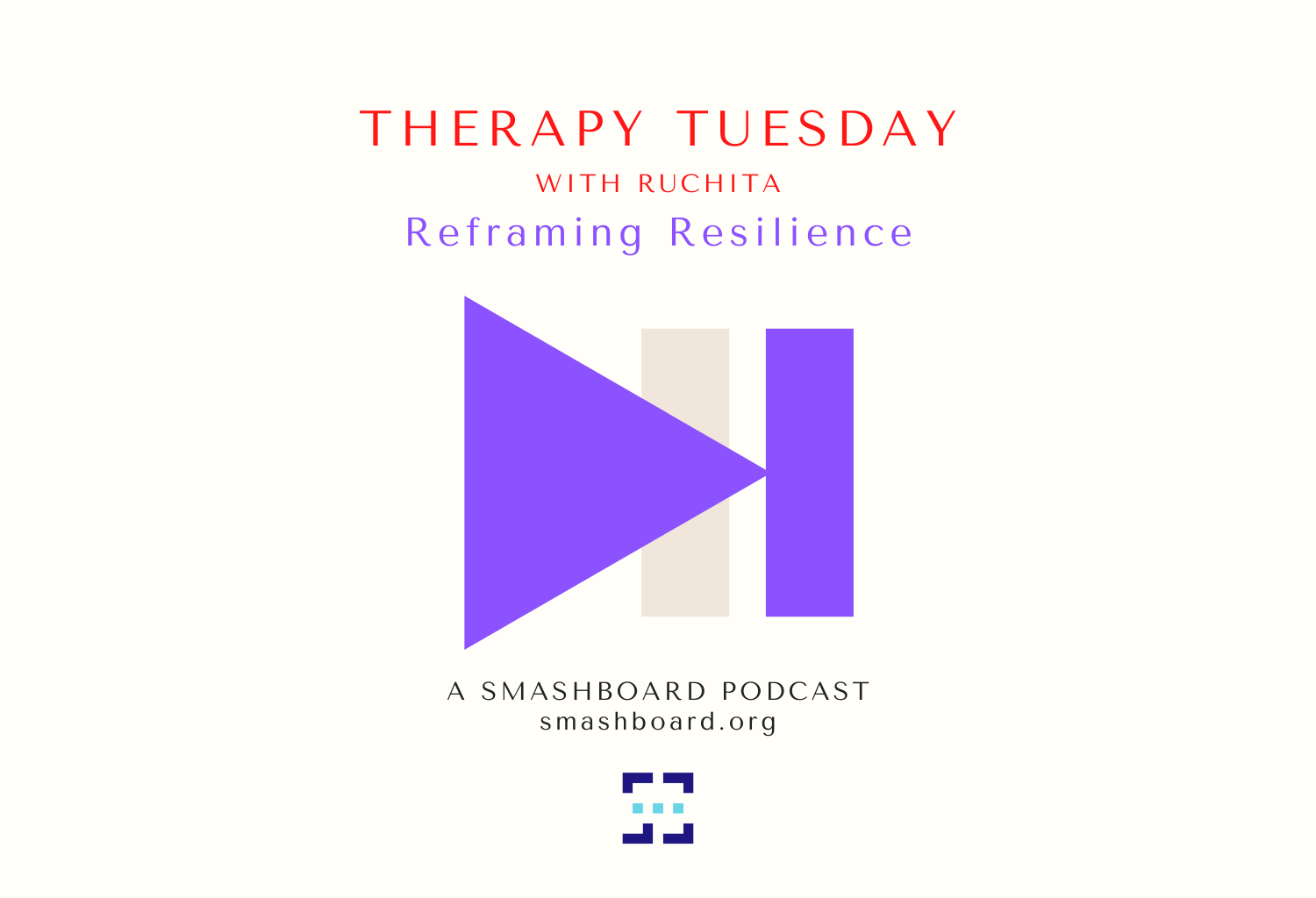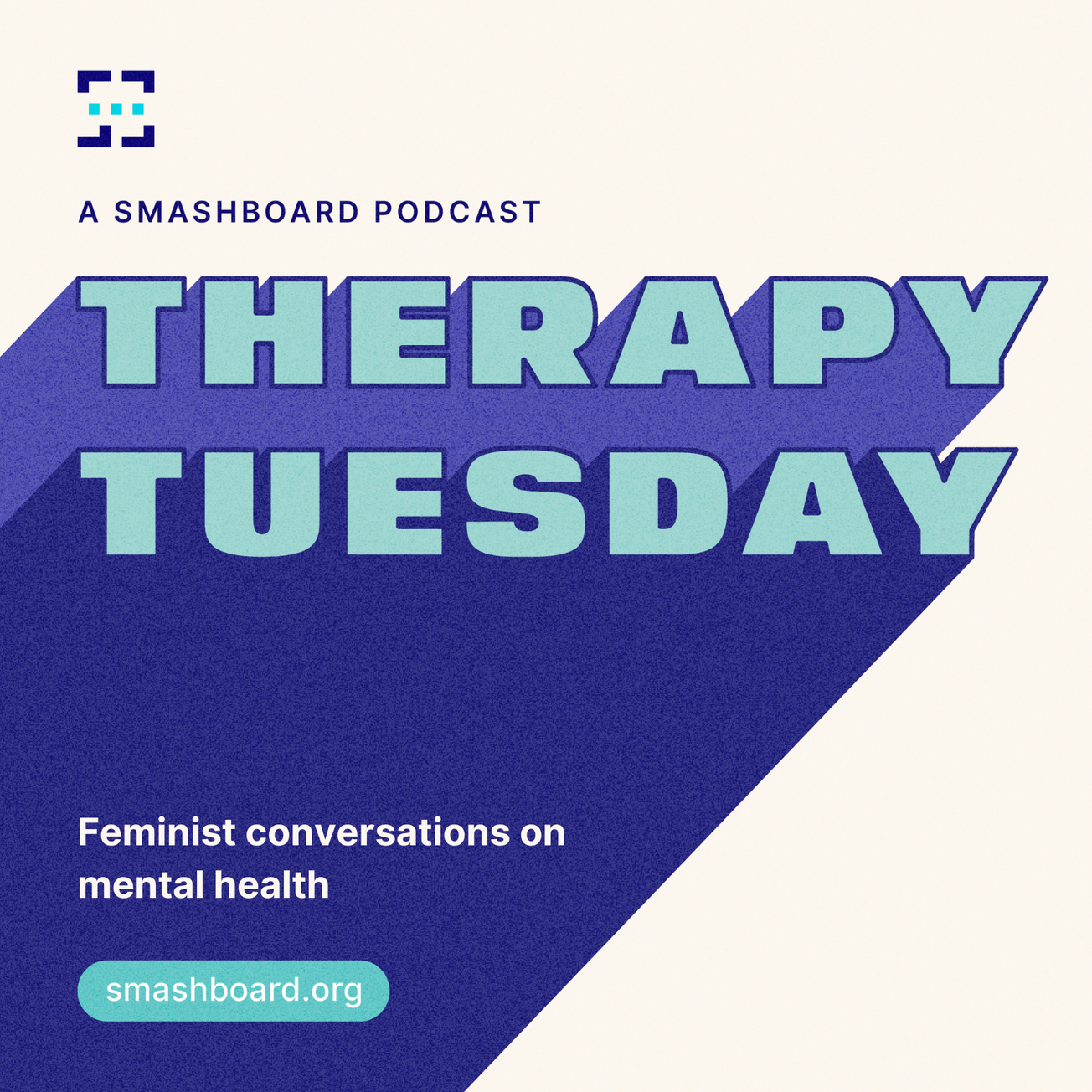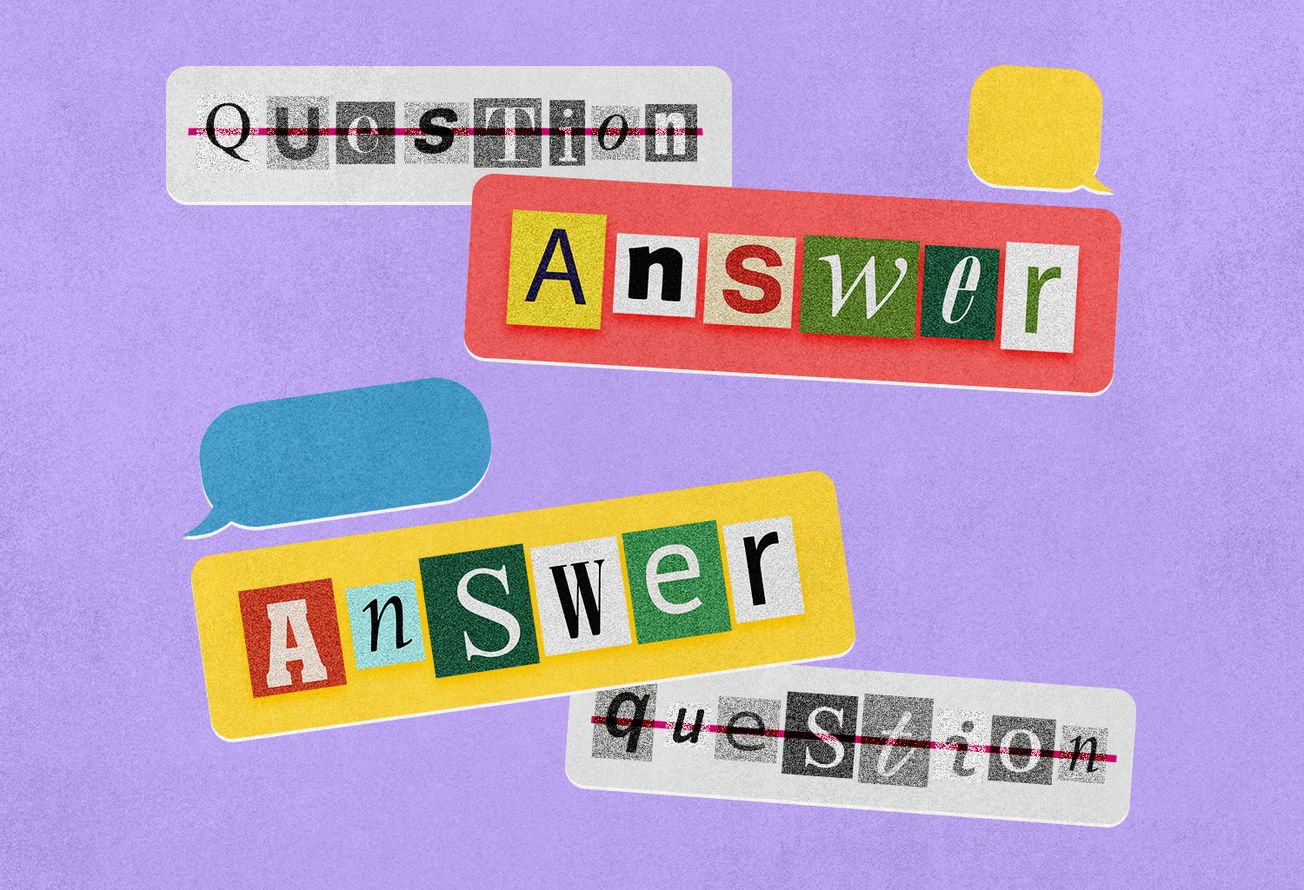Listen to our feminist mental health podcast on your favourite platform. Links here. Please do rate us! And give us a thumbs up/like/star. Have a great Tuesday!
Credits
Host: Ruchita Chandrashekar
Audio Mix and Edit: Depot Records
Scroll down to the end for the full transcript.
APPLE PODCASTS
GOOGLE PODCASTS
SPOTIFY
FULL TRANSCRIPT OF THIS EPISODE:
Hi, this is Therapy Tuesday, Smashboard’s mental health podcast and I am your host Ruchita Chandrashekar. I am a behavioural health researcher and psychologist with a specialisation in trauma and post-violence recovery, and this podcast has been created for people who are looking to have conversations around mental health from a feminist perspective. Please remember this podcast aims to be an educational resource and is not a substitute for therapy or treatment.
So in today's episode, we thought we'd talk a little more about what does it mean to establish healthy boundaries. Every relationship deserves healthy boundaries and boundaries are characterized by the autonomy, comfort, and responsibility one has to define in their relationship. Boundaries are defined by limits. One of the most powerful ways of establishing boundaries is in saying ‘No’. But that’s also not often easy and the social nature of human interaction and the expectations of connectedness can exercise the pressure of adhering to everyone’s expectations and desires. Managing the power differential in relational dynamics can be challenging while attempting to establish boundaries. Creating boundaries can also feel uncomfortable and confusing, so it is important to have a basic understanding of what healthy and unhealthy boundaries look like. So let’s start by unpacking what are unhealthy boundaries. Unhealthy boundaries are defined by an utter disregard for one’s wants, expectations, needs, and well-being. They can make a relationship feel more authoritarian and make one person feel ‘less than’ the other. So, some relationships that are at risk for feeling this way are often parent-child relationships, teacher-student relationships, boss-employee relationships—it’s a clear power differential often. There is an absence of equality and equity in such relational dynamics. Don’t get me wrong, sometimes peer relationships can also do that, or romantic relationships, friendships - multiple relationships can have a risk for unhealthy boundaries and the thing I am encouraging you to look out for is a power differential. It’s that feeling of feeling ‘less than’ the other person you are in this relationship with. Emotional manipulation that places one’s person’s needs as more important without the consideration for the other, disrespectful attitudes, violent language, emotional abuse, physical and sexual violence are consequences of unhealthy boundaries. Relationships with unhealthy boundaries create a toxic environment. They increase the risk factors for mental health concerns. The absence of limits can create an enmeshed relationship or an unhelpful attachment style that can be damaging to the well-being of the individual and the relationship. So for example, I used to have a professor who would say that every relationship has your stuff, my stuff, and our stuff, and sometimes one person’s stuff can bleed into another person’s stuff or bleed into the relationship. Which is why boundaries also help you manage those limits. It helps you be a little more self-aware, it helps you understand what you need to work on, what you need to communicate, and what might actually be damaging the relationship and your own well-being. So, what are some ways to recognise unhealthy boundaries? I’m going to put this down in different bullet points and see if something sits with you or not.
- Feeling responsible for the emotions, experiences, and behaviours of both parties.
- Disrespectful of opposing views and beliefs.
- Unhelpful communication style for feelings of insecurity, anger, sadness, and jealousy. I think sometimes we tend to put emotions and experiences under the binary of good and bad. So some emotions and feelings are seen as, “This is great”- so there’s joy, there’s excitement, there’s peace, there’s all of those things. But feelings of insecurity, anger, sadness, jealousy, anxiety, even are often demonised, and previous podcast episodes we’ve talked about how that is ineffective. In relationships it’s important to communicate that you are experiencing these feelings, but it is also important for the relationship to sometimes hold the space for these feelings and what healing can look like, what communication needs to look like and whatnot.
- Feeling scared of drawing boundaries or communicating needs.
- Not being receptive to when needs are communicated by the opposite party.
- Feeling exhausted in the relationship.
- Feeling like you are not listened to or not practicing active listening with the opposite party.
- Manipulating to situation for personal gain, even manipulation for money, or manipulated into sex.
- Increased feelings of guilt and shame.
- Disregard for personal space.
- Dismissing needs when communicated.
- Resorting to yelling, exiting conversations, changing the subject when opposing views are communicated. Also, a lot of hot and cold behaviour where if two people have fought, one person feels like the absolute responsibility is theirs and if that’s a persistent feeling you keep having, something may not be okay within that relationship.
- Gaslighting and shaming is another one.
- Disregard for individual mental health.
On another end of the spectrum are some of the ways we can recognise healthy boundaries.
- Feeling autonomy in the relationship.
- Not feeling afraid in the relationship.
- Feeling secure while communicating needs and expectations.
- Feeling comfortable in communicating when needs are not met.
- Consensual touch.
- Actively listening and feeling listened to. So if you notice that a lot of things within these lists are about collaboration and not about one person having to take on absolute responsibility.
- Taking space for active reflection.
- Communicating feelings of burn-out and exhaustion which is often normal in multiple relationships.
- High regard for individual mental health.
- Security in saying ‘No’.
- Not feeling consistently responsible for the opposite person’s actions and emotions.
How does one establish healthy boundaries? The key to establishing helpful boundaries is in interpersonal reflection. Boundaries are attached to feelings of self-worth. It involves an abundance of learning and unlearning what we know about relationships. Boundaries are also related to how we view ourselves and the importance we place on our needs. Often in clinical sessions, when we talk about boundaries and someone says that they tried to assert a boundary but they didn’t get the best response from the opposite person, or they ended up having feelings of guilt, I often normalise that setting boundaries is not supposed to be a comfortable process, because there is something that feels comfortable to one person or both parties that you are disrupting with a boundary. So it’s going to feel disruptive. It’s bound to have some amount of adjustment stress. And honestly, a lot of times, that’s how you know that it’s working. That the boundary you've set is working. If it makes you uncomfortable or makes the other person uncomfortable and that there can be long-term benefit to that boundary. While open communication is an important tool in the establishment of boundaries, it might not be the most effective way in equations that have a strong power dynamic. So often again, in South Asian cultures specifically, when it comes to parent-child relationships, the consistency of infantilisation goes on even when, once you are in your forties and whatnot. So a lot of times people say that, “I don’t want to get into this fight with my parent”, or “I don’t want to have this conversation at all”, but the ‘No’ may not be respected because the power dynamic is so strong. The existence of a safe space may not be afforded to some relationships that have a desire for maintenance but an unhelpful power dynamic. So the same goes for relationships between bosses and employees, teachers and students, institutions and individuals, and even the larger systems that we are all a part of and us as individuals. Personal reflection that can help an individual develop a picture of the healthy and unhealthy characteristics of a relationship can be a foundational step in the establishment of healthy boundaries. Because sometimes we need to take a step back and recognise what’s not working, what’s going wrong, and what’s working. Having a community outside of the relationship for discussion purposes, for opening up, for vulnerability is integral. Because sometimes we can be so enmeshed in a relationship that we may feel like something is wrong, but it may be difficult to see what is wrong. So I believe that it is important to have multiple safe spaces- I recognise that that’s a big privilege, but we need to develop environments that allow people and communities to cultivate multiple safe spaces. And having these brave and safe spaces for processing emotions, for support, and for the discussion of experiences is extremely important. Disengaging, taking space, communicating unhelpful patterns, seeking professional help are other ways of establishing healthy boundaries. Relationships are complex and there’s a collective responsibility in maintaining its health. The customised nature of boundaries is individual to each relationship. What works for my relationships may not entirely work for yours, which is why a lot of these things are suggested, a lot of this has to be trial and error, there needs to be a lot of stepping back, self-awareness, relational awareness, and that’s why we emphasised on interpersonal reflection being an important part of this process. It takes consistent effort, reflection, and action towards being considerate to all parties involved, especially ourselves. I find that that’s usually one of the biggest challenges we all tend to have. It’s important to create a nurturing environment for evolution while being protective of each individual’s well-being, desires, and their role in a relationship. Except in some situations of course where boundary assertion also comes from a place of opposite person or set system is causing significant harm and we need to exit the space, we need to use non-verbal clues, and just leave the situation and disengage entirely. But in relationships where you’re hoping that boundaries are going to help the relationship and this is the one you want to maintain, I think it’s important to practice overall consideration towards everyone’s feelings and well-being as well. Set on a common ground of beliefs, healthy communication styles, and security, boundaries have the capacity to aid individual growth and collective well-being. That's all I have for you on this episode of Therapy Tuesday! I hope it left you with something to reflect on and I'll see you soon on another episode.



